What's New
Displaying results 981 - 990 of 4052
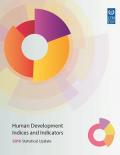
Resource | Publications,
Human Development Indices and Indicators: 2018 Statistical update is being released to ensure consistency in reporting on key human development indices and statistics. With its comprehensive statistical annex, our data gives an overview of the state of development across the world, looking at long-term trends in human development indicators across multiple dimensions and for every nation, the 2018 Update highlights the considerable progress, but also the persistent deprivations and disparities.
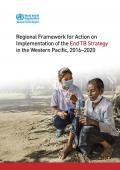
Resource | Guidelines,
Progress in reducing the tuberculosis (TB) burden in the Western Pacific Region has been remarkable, with millions of lives saved and drastic reductions in prevalence and mortality in the past two decades. Throughout the Region, national tuberculosis programmes (NTPs) have expanded the basic TB services package and centred its focus on the most cost-effective, high-impact interventions at little or no cost to patients. Furthermore, accurate epidemiological information and programmatic evidence have provided a rich base for informed decision-making.
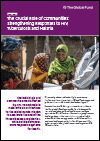
Resource | Publications,
Community voices and leadership in governance, implementation and oversight of Global Fund-supported programs is essential to achieving lasting impact.
Lessons from the Ebola response and the transition to the Sustainable Development Goals, with the specific target of achieving universal health coverage, have spurred the Global Fund to reflect on how people access health services and how countries respond to health crises. Rethinking our approaches to building resilient and sustainable systems for health will be essential in order to maximize equitable access and impact on HIV, TB and malaria.
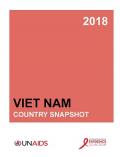
Resource | Reviews and Snapshots,
This provides an interactive report with colourful infographics and bite-size information on the HIV epidemic and response on key populations at higher risk of HIV in Viet Nam.
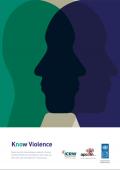
Resource | Publications,
This report by UNDP, ICRW and APCOM Foundation explores the links between violence, mental health and HIV risk among men who have sex with men and transwomen in seven South Asian countries – Afghanistan, Bangladesh, Bhutan, India, Nepal, Pakistan, and Sri Lanka. It is based on focus group discussions in 12 sites in 7 countries with men who have sex with men and transwomen who have direct experience of violence, as well as interviews with key informants from community-based organizations, health, law, and government. The report provides concrete recommendations to stakeholders across many sectors to mitigate and minimize the effects of violence on mental health and HIV vulnerabilities through programme and policy efforts.
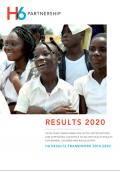
Resource | Publications,
The Framework will guide the H6 in shaping a more effective, results-based partnership. With little more than 30 months to achieve the 2020 milestones, the time for implementation is now.
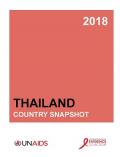
Resource | Reviews and Snapshots,
This provides an interactive report with colourful infographics and bite-size information on the HIV epidemic and response on key populations at higher risk of HIV in Thailand.

Resource | Publications,
The Annual Report documents UN Women’s work to foster women’s empowerment and gender equality around the world. It highlights some of the organization’s initiatives during the year and provides summary financial statements, a list of new programmes and projects, and contact information.
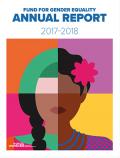
Resource | Publications,
Supported by photographs, data, infographics, and individual stories of impact, the 2017–2018 annual report highlights key aggregated results achieved by the Fund for Gender Equality’s (FGE) 26 active projects. In 2017 alone, FGE projects reached more than 48,700 direct beneficiaries (84 percent women) through evidence-based strategies to advance gender equality at the local, national, and regional levels. During the first semester of 2018, the FGE’s role as a crucial mechanism to promote women’s economic and political empowerment was reaffirmed through the outstanding results achieved by the supported women’s civil society organizations.
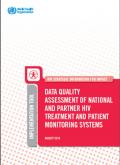
Resource | Tools,
In the past decade, national programmes and donor-funded projects have made great progress in reaching people living with HIV with life-saving treatment in countries across the globe. Measuring success of these initiatives requires strong monitoring and evaluation systems that produce high-quality data.
Efforts to ensure data quality, therefore, are not singular events occurring randomly. Rather, these processes need to become institutionalized as part of all routine data management processes.
The aim of this tool is to help countries that are planning to undertake rapid and robust data quality assessment (DQA) of national and partner data quality with a particular emphasis on HIV treatment while improving and supporting patient monitoring systems to improve data quality and use.





